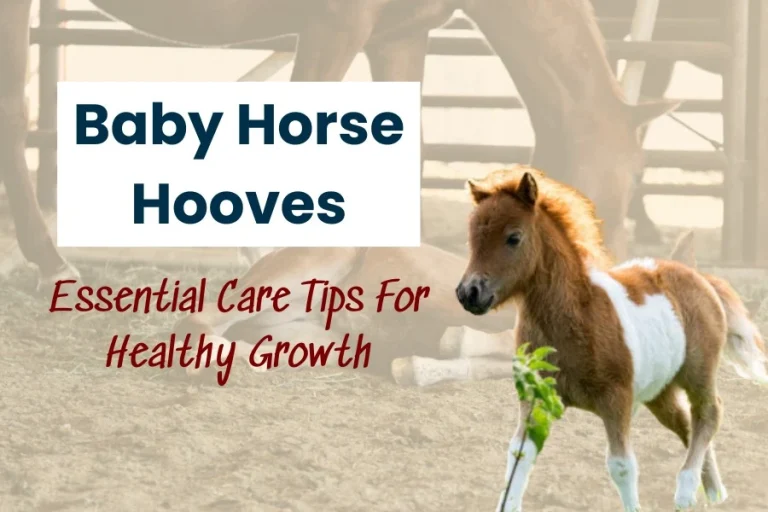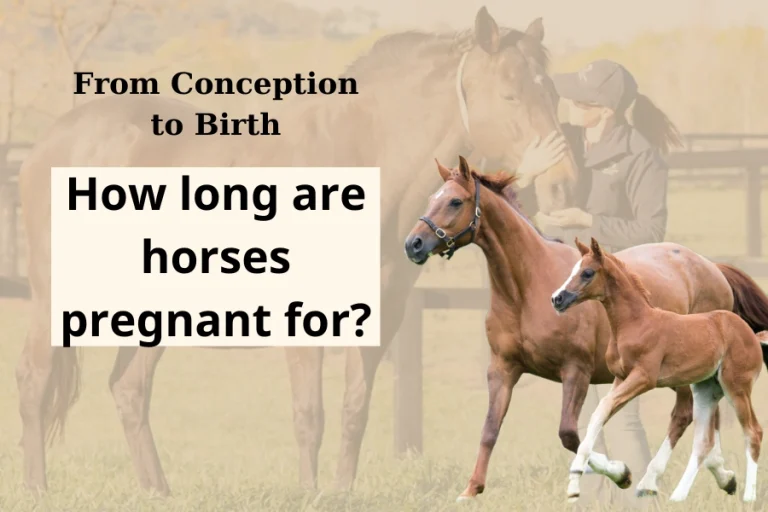How Long Horses Live – 6 Factors Affect Horses’s Lifespan
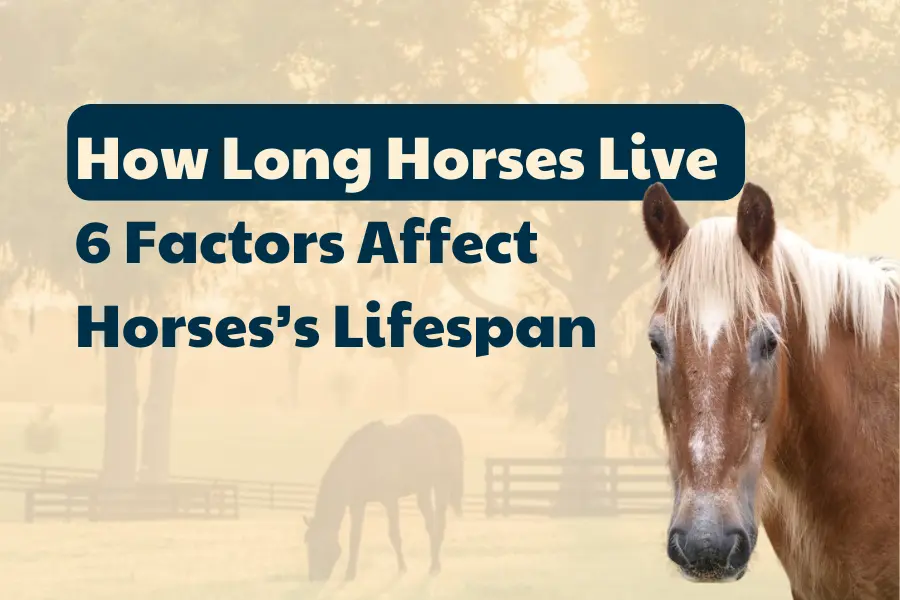
How long horses live depends on various features. The reasons for the horse’s longevity can be from internal and external horses. Horses are recognized for their strength, beauty, and loyalty. Horse breeds nowadays often live longer than their ancestors of the past. Understanding how long horses live is critical for anyone considering horsepower or simply interested in these intelligent creatures.
Whether you are a seasoned horse rider or a curious animal lover, you have to read carefully this comprehensive information on horses’s longevity. This article can give you full knowledge about a horse’s life span as well as suggest some advice for your horse’s health.
How Long Horses Live
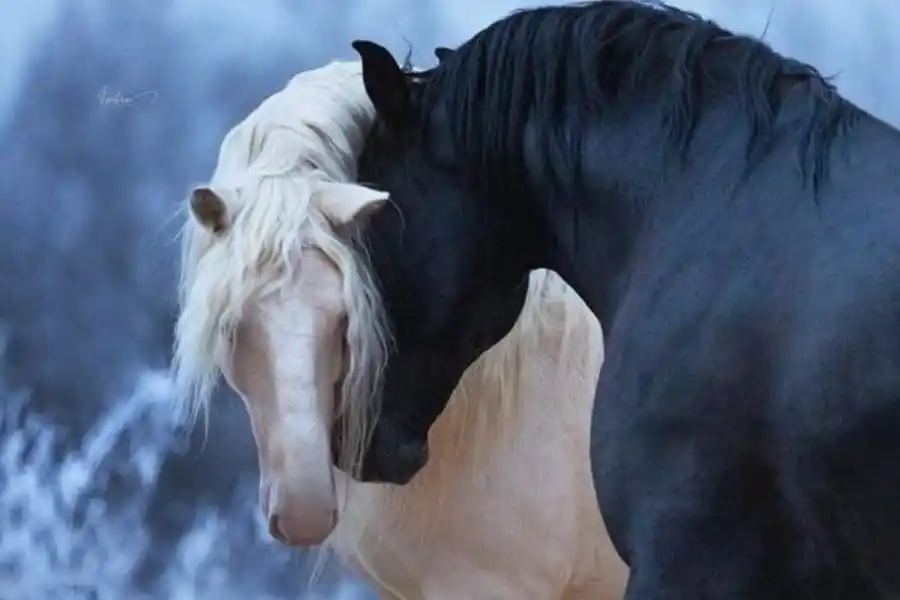
Horses are intelligent and are loved by numerous people for their loyalty, and talents in work and recreation. So, the breeders understand how long horses live is pivotal for implicit horse possessors, allowing them to plan the appropriate care for each type of horse so that their horses can accompany them for as long as possible.
What Is the Average Lifespan of a Horse?
Horses live between 25 and 30 years on average. The lifespan of horses alters based on several variables, like care, and breed. Nonetheless, some horses can live well into their 30s or indeed 40s if contributed the right care. For illustration, ponies and other lower types constantly outlive larger types.
A horse’s life can be greatly influenced by regular vet care, a balanced diet, and a comfy home. In some cases, these factors can help a horse live to or beyond thirty. Horses can live far longer than anticipated with great care. Old Billy is the oldest horse to have ever been proven, lived to an incredible 62 years old.
| Breed | Average life expectancy |
| Mustang | 15 to 20 years |
| Friesian | 16 to 18 years |
| Gypsy Horse | 20 to 25 years |
| American Quarter Horse | 20 to 25 years |
| Clydesdale Horse | 20 to 25 years |
| Norwegian Fjord | 20 to 25 years |
| Thoroughbred | 20 to 28 years |
| Belgian Draft Horse | 20 to 30 years |
| Clydesdale | 20 to 30 years |
| Percheron | 20 to 30 years |
| Shire | 20 to 30 years |
| Icelandic Horse | 20 to 30 years |
| Arabian Horse | 25 to 35 years |
| Quarter Horse | 25 to 35 years |
| Miniature Horse | 25 to 35 years |
| Tennessee Walking Horse | 28 to 30 years |
| Appaloosa | 29 to 33 years |
| American Paint Horse | 30 to 31 years |
What Are The Signs of Aging in Horses?
As horses age, they exhibit several signs that indicate the onset of aging. Typical indications of aging in horses include:
- Physical signs: The signs of aging in horses exhibit several physical signs. These signs are a sagging back, muscle loss, cloudy eyes, hollow flanks, and graying hair and mane. They also include slower chewing from shifting or missing teeth. Also, older horses may develop osteoarthritis in their joints. This can cause stiffness and discomfort.
- Hormonal issues: Beyond these physical changes, hormonal issues can also arise. It may become disrupted in older horses. It can cause laminitis, trouble shedding, or increased thirst and urination. Kidney and liver diseases are also potential concerns as horses age. If your aging horse shows unusual behavior or health issues, consult a vet.
- Melanomas: Horses are less prone to tumors than humans. But, some age-related growths can occur, like melanomas or sarcoids. Melanomas are more common in gray horses. Sarcoid growths, which resemble warts, can appear anywhere on a horse’s body. Before electing to remove these growths, speak with a veterinarian.
What Can Cause A Horse to Die?
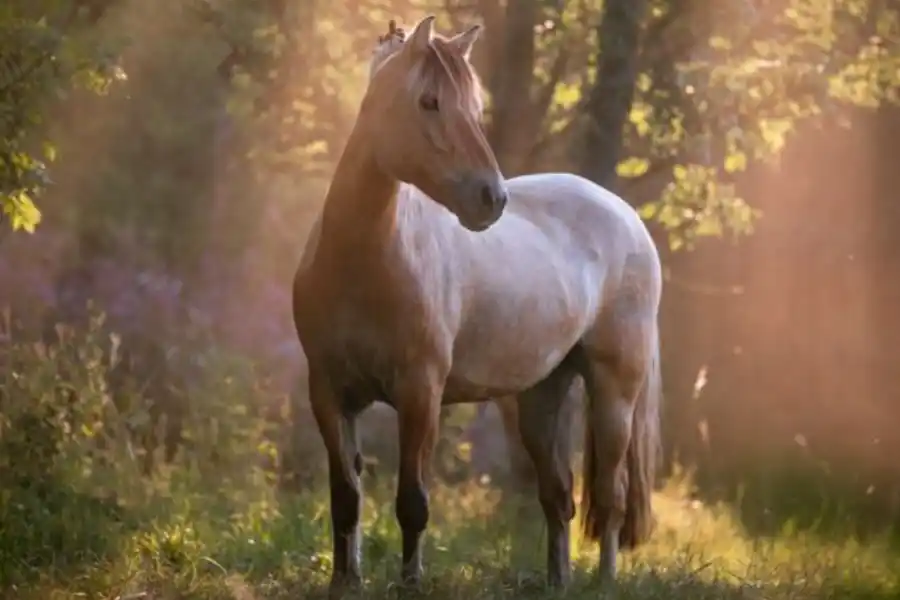
In reality, just 0.6% of horses pass away from old age. In most cases, the reasons can cause a horse to die from age-related diseases or conditions. The main cause of colic in many horses is the development of lipomas, or fatty tumors, in the digestive tract, which can lead to a twisted gut. Cardiac arrest is another common cause of death, particularly in former racehorses and high-performance sports horses. Infectious diseases are responsible for 10-15% of horse deaths, especially in equestrian centers where horse populations are denser.
Top 6 Factors That Affect A Horse’s Lifespan
After learning how long horses live, the horse sucker queries, “What factors affect the horse’s life?” The longevity of a horse can vary greatly depending on several key aspects. Understanding these factors can help horse possessors give the most stylish care possible, potentially extending their horse’s life. They are the most significant factors that affect a horse’s lifespan:
- Breed: Different horse types have varying life contemplations. lower types like ponies frequently live longer than larger types like draft horses. For example, Arabian horses are known for their life, frequently living into their mid-30s, while larger types may have shorter dates.
- Genetics: Similar to humans, genetics has a major influence on a horse’s lifetime. For horses, a long-term nutritious diet high in essential elements is essential. When it comes to rotundity, stomachaches, and other health issues that might shorten a horse’s life, appropriate feeding methods can help.
- Diet and Nutrition: Horses require a long-term, nutritious diet that is high in essential elements. When it comes to rotundity, stomachaches, and other health issues that might shorten a horse’s life, appropriate feeding methods can help.
- Exercise and Activity Level: A horse’s external and internal health depends on regular exercise. Active horses typically have longer, healthier lives. Still, inordinate work or high-impact conditioning can lead to injuries or common problems that may dock a horse’s life.
- Healthcare and Veterinary Attention: Regular veterinary check-ups, vaccinations, dental care, and deworming are essential to help conditions and catch health issues beforehand. Proper hoof care is also pivotal, as poor hoof conservation can lead to lameness and other serious problems.
- Living Conditions: Horses that live in clean, commodious surroundings with proper sanctum and fellowship are more likely to live longer. Horses are social animals, and those kept in insulation or poor conditions may suffer from stress or develop behavioral issues that impact their lifespan.
In addition, the pregnancy period of horses is also a deep-rooted cause that affects their lifespan. After giving birth, if filly horses are carefully cared for by their living environment as well as by their loving owners, they will live longer than horses that are not.
How To Extend Your Horse’s Lifespan
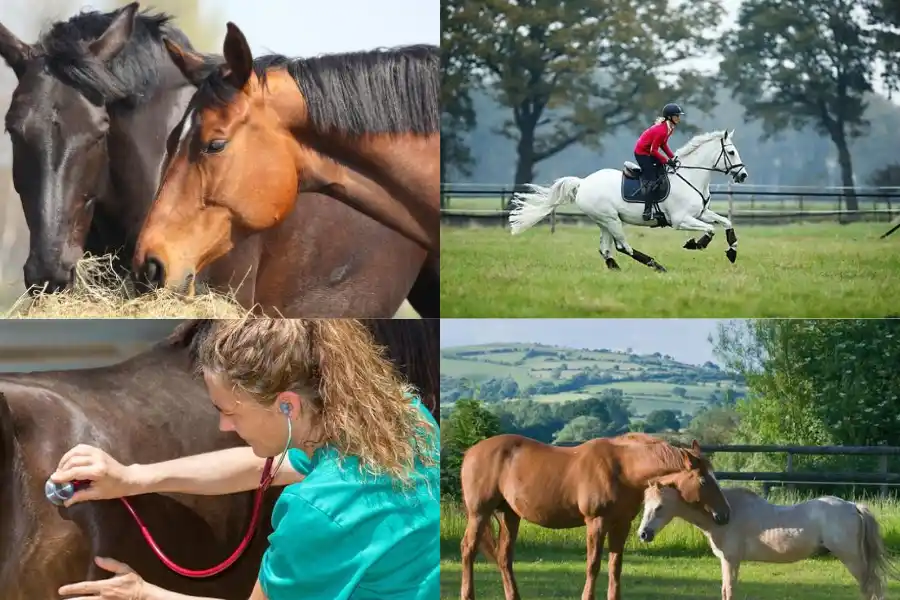
The time horses live fluctuates from 25 to 30 years. So, whether you own a horse or are thinking about getting one, there are several ways you may support its long and healthy life. Then are the top 5 advice to extend your horse’s lifetime
A balanced diet can make sure that the proper proportion of grains, supplements, and probes is given to your horse. You should speak with a veterinarian or equine nutritionist to create a feeding program that is tailored to your horse’s needs.
Frequent veterinarian care can affect how long horses live. A routine arrangement for veterinarian examinations to cover your horse’s health and identify any potential problems early on. Regular dental treatment, deworming, and vaccinations are recommended.
Routine exercise will keep your horse active, but don’t push them too far. Exercise plans should be customized for the age, breed, and physical condition of your horse.
Good living conditions also maintain your horse’s longevity. The surroundings provide a tidy, secure, and cozy living area. You should give your horses fresh water, shelter from inclement weather, and company.
Mental stimulation and socialization by providing them with internal stimulation via play, training, and interaction with other horses will improve their general health.
FAQs
Still, examining its teeth can give suggestions, If you are uncertain about your horse’s age. While it’s judicious to have an equine dentist assess this, there are some indicators you can observe yourself. For example, if your horse is still shedding a temporary tooth sometimes, it’s likely no older than 2.5 years.
There is no clear answer to which breed lives the longest. A horse’s lifespan depends on diet, exercise, and living conditions. still, Arabian horses are known for their flexibility and constantly have longer lifespans compared to some other types.
Horses don’t necessarily live longer in warm climates compared to cold ones. Each climate has its advantages and challenges concerning a horse’s health. With proper care, a horse can live just as long in a cold climate as it can in a warm one.
Final Thought
Horses can live long, fulfilling lives with the right care and attention. You can help your horse live a long, happy life by knowing what affects a horse’s lifetime. You just take steps to keep them healthy. Anyhow of your experience with horses, prioritize your horse’s well-being. It’ll help them live a long, healthy life. Each horse is unique. An average horse lives for 25 to 30 years. Numerous horses can live longer with proper care and a loving home.

